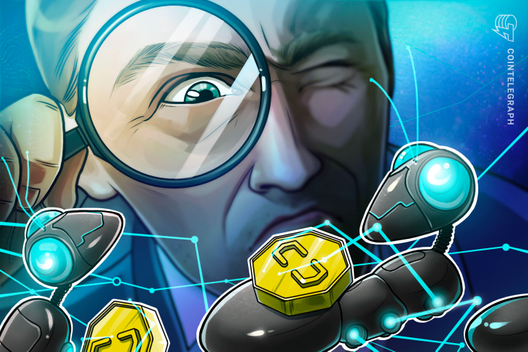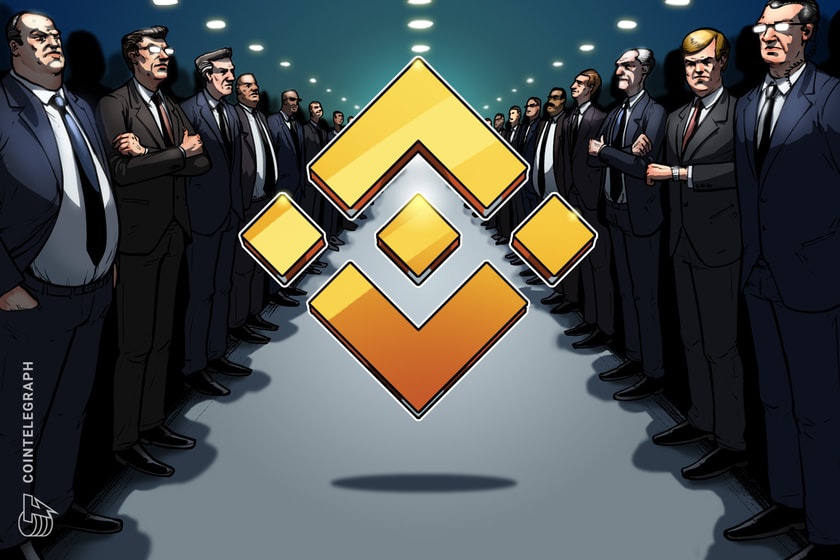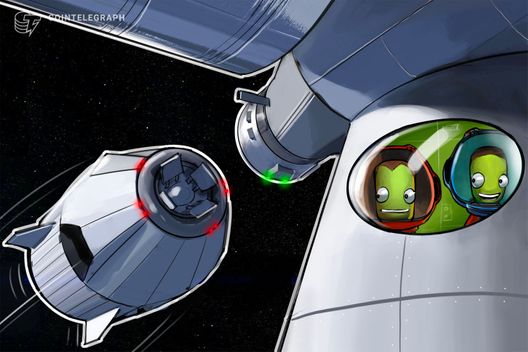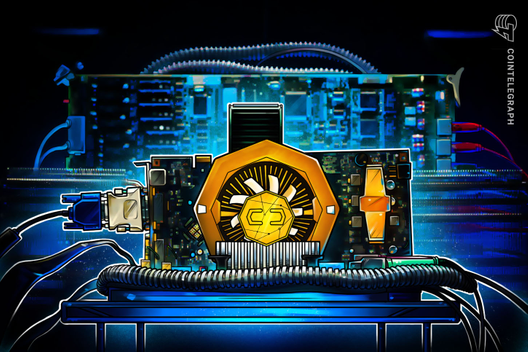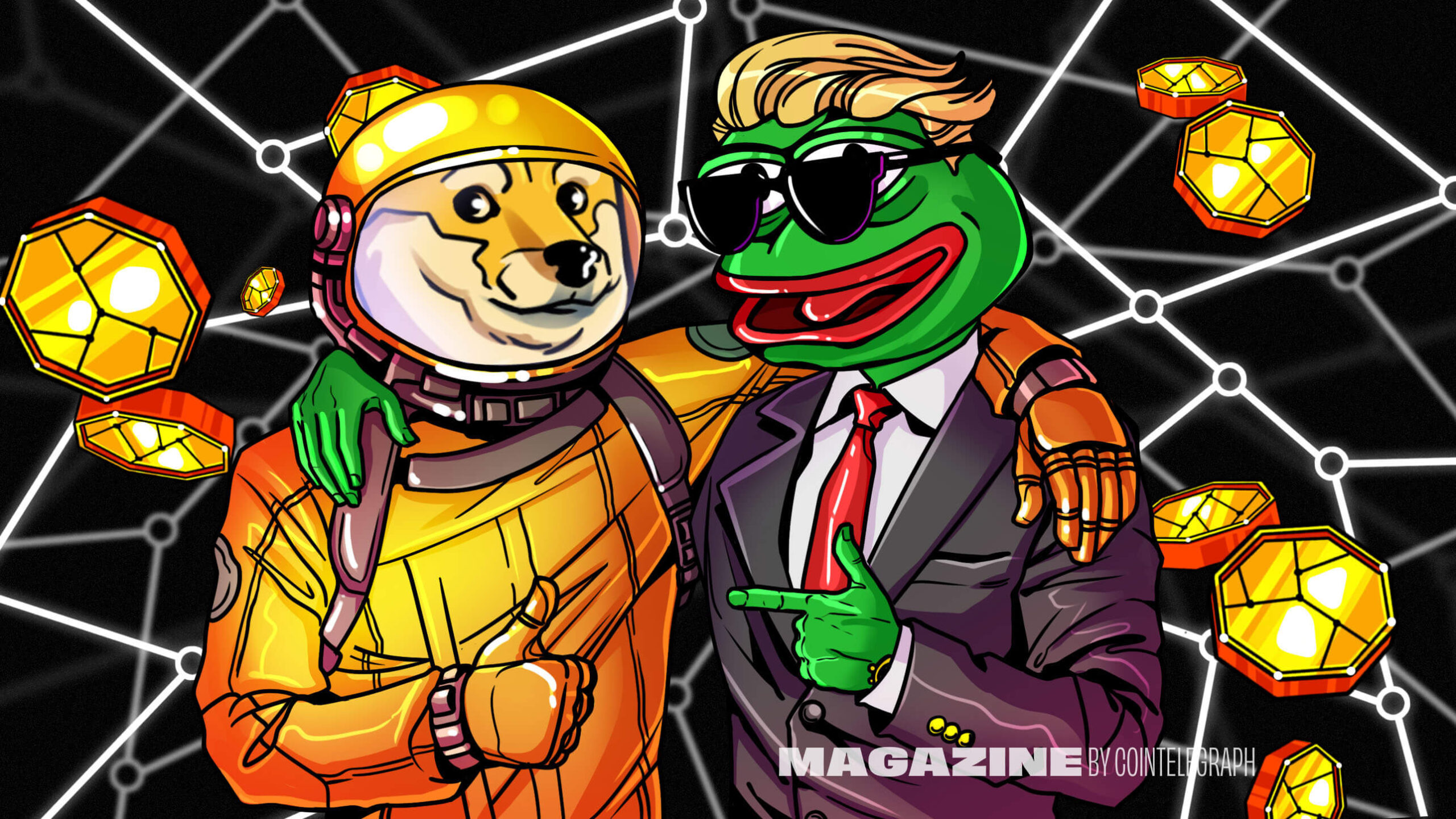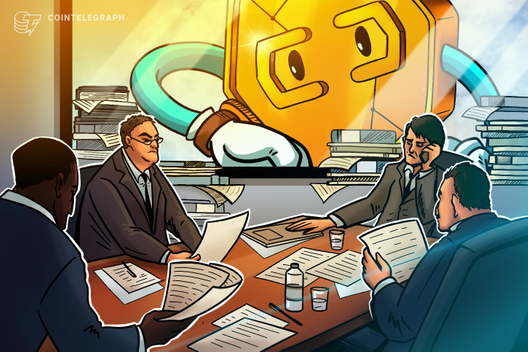Dictators turn delegates: Former CEOs grapple with DAO governance
One morning in July of 2019, Kain Warwick awoke at 6:30 to a grim phone call from his co-founder and CTO, Justin Moses.
“We have a problem,” said Moses.
Synthetix, the synthetic asset protocol that Warwick, Moses, and their team had been building for over two years, had fallen victim to a crippling exploit: an attacker with the pseudonym “Onyx” had created $11 billion of synthetic asset debt — over 275 times what Synthetix was worth — and was taunting team members and sowing chaos in public channels.
These days, time and success seem to have tempered what Warwick freely admits is a fiery disposition. Still witty and pugnacious, he’s prone to ribbing his competitors and critics on Twitter, but otherwise presents as affable and charming; sometimes even wise.
In the Australian winter of 2019, however, he was raging.
Synthetix blog posts from the period maintain a thin veneer of professionalism, but are laced with fury. In them, Warwick equates communicating with the exploiter with a “hostage negotiation,” and says that paying a bug bounty to Onyx is a form of “extortion.” He gets dragged into a war of words, at one point smearing Onyx with a terrible curse in programmer circles, branding the attacker a “script kiddie.”
In context, Warwick’s anger is easy to empathize with. The young decentralized finance (DeFi) platform was in the nascent stages of what is now considered a legendary run, having successfully attracted $40 million in total value locked — just a fraction of an eventual over $1 billion peak. Such an exploit can cripple growth for a fledgling project, and over the next few months the “hyper-competitive” Kain went on the offensive: deploying a mechanism that slashed funds from user wallets attempting to exploit the protocol, a mechanism that eventually gave Kain the last laugh as Onyx’s funds were drained.
Warwick wanted to go even further, too: instituting harsh slashing penalties in perpetuity for anyone attempting to undermine his protocol.
In the end, however, what Warwick wanted was no longer relevant.
Control over the protocol had previously been handed over to a multi-signature scheme, part of a larger, 18-month process of decentralizing Synthetix’s governance through the use of a series of decentralized autonomous organizations (DAOs). The majority of signatories controlling the protocol decided on a more reserved course of action, avoiding a slashing policy entirely.
It was at that moment Warwick says he first faced the “confronting” realization he’d lost the traditional “dictatorial” power of a CEO.
He could no longer “throw a tantrum and say, ‘This is the way we’re going to do this because I feel this way.’”
I was in the minority internally, and what I wanted to do was not going to happen, and I just had to come to terms with it.
The ‘dictator’ had become just another delegate.
A new kind of unicorn
To those uninitiated in the tenets of DeFi and Web3, the decision to decentralize governance over a billion-dollar protocol likely seems insane.
Founder/CEOs like Elon Musk are worshiped with cult-like devotion — and aside from the fame, helming a unicorn grants founders the potential to reap historic levels of wealth: all the fortune of King Solomon’s mines can be earned from the IPO of a simple social app.
Billion-dollar protocols like Synthetix and lending platform Aave stand out in particular for their active revenue streams, growing user bases, and proven models, as well as their involvement in both the fintech and blockchain industries — two of the hottest for speculators and investors. If the regulatory knots could ever be unwound, a Wall Street suit in the underwriting business would no doubt want to institutionalize anyone who suggested handing over control of such a protocol to a DAO.
“That is true, that is actually true,” says Aave co-founder Stani Kulechov, laughing at the accusations of lunacy.
The suits aren’t the only ones who think it’s crazy. Even those ideological adherents who truly and deeply believe in decentralized governance admit that, as of today, the tooling for DAOs is highly limited.
Since October 29th and July 28th respectively, the entirety of Aave and Synthetix’s administrative infrastructure has been operated by DAOs. The process is, at best, rudimentary: AAVE and SNX token holders vote on Improvement Proposals with boolean outcomes, and participants’ votes are weighted relative to the quantity of tokens they hold. While certain departments/administrative bodies might be split into separate DAOs, the structure largely remains the same across the respective networks.
Token-weighted yes/no votes: this is the mechanism that dictates payroll, treasury holdings, protocol upgrades, long term strategy, business operations, and all other forms of governance for two of the largest and most successful DeFi platforms — a pair of sprawling, high-stakes experiments being undertaken in real time.
Embracing ideology over practicality can often be a tricky affair, as anyone who has led a revolution can attest. But even for all the uncertainty, the decision to decentralize was an easy one for both Warwick and Kulechov.
“At some point we noticed that there is so much value in the protocol that we practically have to decentralize,” said Kulechov. “We can’t, as a team, continue to hold this responsibility for something that is highly decentralized except for us.”
Warwick was more succinct on the matter:
It’s just better for everybody if there’s not dictators.
In a series of wide-ranging interviews with Cointelegraph, Warwick, Kulechov, and some of the leading minds in the DAO engineering and organization space discussed the practicalities of decentralized governance, competitive advantages and disadvantages, the unique value capture decentralized governance provides, attracting talent to a nontraditional work environment, and the future of DAOs moving forward.
Centralized versus decentralized
Just as, twelve years on, Bitcoin is still proving the value of a decentralized ledger, it might take time for skeptics of decentralized or distributed governance to come around to the concept.
“They have every right to be skeptical. We’re not quite at the point where this is adding value,” said Patrick Rawson, a co-founder at DAO engineering think tank Curve Labs.
Eventually decentralized governance will become “a nexus of contracts making everyone’s time more efficient, lowering operator costs,” Rawson argued, but currently “the optimizations aren’t there yet.”
Rawson pointed to authoritarian China’s response to Covid-19 as an example of the “optimizations” centralized bodies can currently provide. China was able to shut down the spread of the virus within its own borders because they could “put screws in doors and fully lock people down.”
Similarly, there’s a warranted “folk wisdom” that projects should start out centralized for the optimizational benefits, and then progressively decentralize over time. He concludes that:
The people who are skeptical are skeptical because centralized structures have proven themselves time and time again.
However, DAOs do come with certain built-in competitive edges, argues Eric Arsenault, head of growth and DAO design at DAOstack.
“In certain aspects, you absolutely can compete, and there’s not even an alternative,” he said. “When it comes to questionable legal activities or things involving securities, having a DAO is absolutely more competitive — and in fact is the only valid option, potentially.”
Both Aave and Synthetix occupy decidedly grey legal territory. But legalities aside, Arsenault argues that in the long run a well-coordinated, well-incentivized decentralized organization will always out-compete a centralized one.
“At the end of the day, a DAO allows for open innovation — permissionless innovation and collaboration. A traditional siloed corporation will always be bound by its hierarchy, and the ladders — and your ability to contribute to that will always be limited to a certain extent,” said Arsenault.
A combination of the open innovation and the legal leeway is part of what drew Warwick to decentralizing Synthetix’s governance.
“I love this idea that you can have people that aren’t even in the same building coordinating, or are not all tied to a single legal entity — the governance system can be the coordinating mechanism,” he said. “Even if we may not know how to optimize for that, ideologically that was the thing that attracted me towards [decentralizing Synthetix].”
User ownership is also not a force to overlook, says Rawson. He offered the example of Uber: the parent company reaps the profits generated by drivers, and drivers notably have limited voice and rights.
“But if that were inverted, where drivers slowly gain ownership over time, that’s where the drivers will naturally gravitate towards,” said Rawson.
Sharif Sakr, an analyst for blockchain investment firm BR Capital and a member of Free TON DAO, agrees that DAOs have a unique appeal and set of reward structures for certain people — especially those disaffected with the “whimsy” of traditional hierarchies.
“When I joined Free TON, I think it completely changed my view of incentivization. And it started to make me think differently about incentivization and motivation, as two sort of separate but hopefully parallel things. They were motivated, they were young — even if they weren’t younger than me, they felt younger. I thought, ‘whatever they have, I want some of that.”
Sakr initially joined Free TON to perform reconnaissance for BR Capital as they weighed investing in the project. He quickly found himself enchanted with the unique DAO structure, and now jokes that his Free TON work is cutting into time reserved for his BR Capital duties, occasionally getting him into trouble.
“Through Free TON, I have seen people create something, deliver something, be paid for that thing, receive community applause for that thing, and then see that thing deployed for a bigger goal that they believed in from the start.”
It’s a very fulfilling cycle, and I think the normal world has denied younger people that feeling for far too long […] And that’s kind of a miracle from which there’s no turning back.
Aside from offering top talent a different kind of workplace experience, Rawson believes that eventually the centralized/decentralized competition will come down to who can offer the most robust and compelling ecosystem — and that’s where centralized entities simply won’t be able to keep up.
“Once you can launch the equivalent of a mutual fund or a credit union in 15 minutes, then the competition moves away from ‘who has the best tech’ and towards ‘who has the best, most loyal network?’ That’s when you start to play a game of ecosystems rather than a game of innovation,” said Rawson.
A spectrum of power
Another question that skeptics of decentralized governance frequently raise is to what degree the governance is truly decentralized — after all, if the vast majority of governance tokens (and therefore voting power) are retained by a founding team, how dissimilar are DAO operations from that of a normal company?
“Aave is not a decentralized protocol, I would say,” said Pet3rpan, a semi-anon DAO organizer and member of the Meta Cartel and Venture DAOs. “There may be token governance, but there’s still huge centralization on [the founding team] itself.”
Rawson agreed, saying that users should be cautious about blindly accepting the “decentralized” label.
“If we look at the mechanics, perhaps they’re not [really giving up control],” Rawson said.
Maybe behind-the-scenes this is all plotted out, with a cabal of actors, the right people, and mechanisms in place where they’re not giving up control — they’re theatrically giving up control.
This would boil down to “decentralized theater,” a show granting founders like Warwick and Kulechov the legitimacy of claiming decentralization while surrendering none of the power.
Rawson quickly cautioned that he doesn’t know the inner workings of either project, however, and is simply advocating for a healthy dose of skepticism.
“If they’re doing this really, really well, then I wouldn’t have insight — that’s the point,” Rawson laughed.
Warwick and Kulechov both acknowledged that, as founders, they retain a “soft” power that elevates their voices above others — and that they still hold a portion of tokens large enough to keep them incentivized to continue working on the protocol.
However, founders retaining soft power is nothing new in the crypto space. Though Vitalik Buterin has claimed he no longer has any true control over Ethereum, he remains a figurehead in the eyes of many.
Kulechov also mentioned the founder of Linux, Linus Torvalds, as someone whose example he aims to follow:
“I love the way Linus Torvald is doing it at Linux. He practically deployed the very first software of Linux, Kernels, and even Git, and to this day he follows what’s happening in the community and is actively involved. I really like that kind of approach when building protocols. It’s hard to build something, that you get it right where people are using your protocol and you have sustainability — that’s something that’s difficult to leave.”
Warwick, meanwhile, made it clear that his soft power does have clear limits:
“If I turned up tomorrow in Discord and said, Hey, I’m writing a SIP to change the monetary policy of the token to divert all of the fees to 0x0 address (which would burn the funds), for example, I can’t see a scenario where I get that over the line — no matter how persuasive I am.”
Sakr also pointed out that there are different kinds of soft power, some of which occupy an important role in a DAO. Social hierarchies are a naturally occurring phenomenon in any human organization, and there’s nothing wrong with certain people commanding soft power by way of respect — for instance, product managers.
“A product manager only operates through soft power. They are rarely top of a hierarchy, but usually on the side — they’re not the head of engineering, they’re not the head of design, not the head of commercial, they’re not the head of anything. They often have a big personality, and they are not revered at all, but respected due to the force of personality, imagination, gravitas, vision.”
Where soft power goes wrong is when it becomes overly reverential, says Sakr, granting an individual disproportionate sway and cult-like status — status which founders often command.
Warwick also seems to resent whatever degree of reverential soft power he commands, wishing he could participate without the cloud of his own influence hanging over him. He talked through a hypothetical where he would leave Synthetix publicly, rejoin anonymously, and build up credibility in the DAO through a new persona.
In the end, though, such an undertaking would be too complicated.
“As someone who is, ultimately, a crypto-anarchist, centralized power is bad,” Warwick sighed. “The fact that a founder retains soft power, but not hard power, is probably a good balance.”
Pet3rpan agrees. While the Synthetix and Aave DAOs could stand to have a greater degree of token decentralization, founders retaining soft power ultimately makes sense.
“It’s just reality,” he said. “I don’t see anything wrong with it. The rhetoric of, ‘these people still have influence,’ well yeah, no shit […] You want to listen to people who have done the most. If a leader of a project is the person who has done the most — well, that’s not the greatest conspiracy ever.”
Fresh blood
While founders maintain some of their stature, who is actually doing the work day-to-day? Though some models have emerged, an unanswered question remains as to how decentralized governments attract new talent.
“I personally like the idea that when you give the keys to the community, you can walk away and say, ‘My work is done,’” said Kulechov.
However, he acknowledged that the unfortunate reality is that the majority of smart contract engineering still comes from Aave’s founding team. While he speculated that one day more third-party developers might come on as employees of the DAO, so far it hasn’t happened at scale.
That said, “lots of small features have come from the community,” he says. “The changes might be very small, but very useful.”
He described one example where a community member proposed that users in certain legal jurisdictions would have the option not to take on new, wrapped tokens upon depositing funds into Aave — a minor operational change that would yield significant tax and efficiency benefits for depositors.
Warwick also said that the majority of technical improvements and changes to the protocol still come from the core team — and that the team is keeping to a “five year plan” mapped out before Synthetix decentralized its governance — but upwards of 80% of operational changes to the protocol, such as adjusting collateralization ratios, now come from the community.
“The community is on top of it more. They see where something isn’t optimal, they can monitor on-chain and see if there’s something inefficient with the peg or something, and so those are increasingly coming more from the community,“ he said.
Pet3rpan emphasizes that DAOs offloading major responsibilities from the core team to the community is a key step in long-term success.
“It’s like a mother and her child: you don’t want to coddle the child because it will become this useless thing that always needs help,” he said. “If you really removed the core team from Compound right now, or even Aave, […] they wouldn’t really exist.”
He pointed to Yearn.finance as an example of a DAO that has successfully invested in developing and attracting new talent.
Maybe if Andre [Cronje] didn’t exist anymore we wouldn’t get these mergers and cool innovations like Deriswap, but the core YFI product would keep going because they’ve built up the team and trained a team of really great engineers.
However, Pet3rpan also suggested that progress might be a process and not an event.
“It makes sense that the first proposers and the first people who are involved are the core team. The other people, the workers and the contributors, they will come. Money, and having a large treasury in the DAO, that takes time — but it will come.”
Sakr also believes that the talent migration from centralized entities to decentralized ones is just a matter of time.
“I am coming from a world where energy and young people have been repeatedly, almost psychically crushed […] I’ve seen so much failure from the centralized world. I just can’t see anything in this world for DAOs to compete against that has been so amazing or impressive.”
Into the unknown
Few of the experts that spoke to Cointelegraph for this piece could offer historical analogues for successful decentralized governance. It is new, largely unexplored territory.
This means, of course, that there are heaps of developmental work to be done — but according to Rawson, scholars have already laid the bulk of the theoretical groundwork.
“Scholarship usually predates technological change,” he said. “Everyone sees this coming, everyone knows it’s coming. The folks who are doing this thing every day, having this empirical experience… time might seem slower to us because a day in DeFi is 20 years in the real world, but it’s moving along. It’s moving along and it won’t be long before businesses start out as DAOs.“
He points to The Handbook for Computational Social Choice, a sprawling, 600-page tome that games out a vast array of possible computational governance and voting structures. According to Rawson, DeFi has only scratched 2% of what the academic theory has to offer.
Additionally, according to Sakr, the process of advancing DAO tooling might be less of a technological push forward, but rather a social step back toward more traditional community structures.
“Some people have called it civic fabric — the invisible, informal, nonofficial relationships that bind, for example, neighbors — that cause someone young to do the shopping for someone older. These sort of layers of trust that have been there, perhaps have been damaged by the industrial revolution.”
He compared the Free TON community to another he encountered as he moved his family to rural France to escape the Covid-19 outbreak: an idyllic town bound by loose, but powerful, collectivist bonds:
A DAO is merely a formalizing of very deep and instinctive human bonds that I think have been suppressed.
From a market perspective, the tooling might rapidly improve as the time is already approaching when DeFi users demand some degree of decentralization from the projects they use at the governance layer, and not just at the protocol layer. Arsenault hopes that day comes soon.
“I would hope that the market would move in that direction,” he said. “You’ve seen hacks, you’ve seen issues with rugpulls […] The more these types of things happen, the more people are going to be requiring some form of governance mechanism to ensure their funds are safe.”
The consensus among the founders and experts is that a true DeFi requires decentralization at both layers. For the founders especially, even if it means giving up certain privileges, they seem eager to move forward.
“You’re saying goodbye to a power you have, but you’re saying at the same time, ‘Welcome!’ to a new kind of power,” said Kulechov. “You’re accepting that the model you had was there for a reason, but for where you need to go, you need the new thing.”
Likewise, Warwick implied that the governance development now takes precedence for him over the protocol.
“I think the specifics of how Synthetix works are, to me, far less important to me than how it’s coordinated, and how we’ve built these primitives to scale it up,” he said. “I think the incentive structure and the governance structure are, to me, more important than even what it does.”
And is there any advice for the young founder who wishes to brave the decentralized frontier and start their enterprise as a DAO?
“I think the most important thing is, there’s no reason to be afraid to give up this power,” said Warwick. “As long as you’re supporting the community while you’re doing it, and making sure that they’re good custodians stepping into that role and power as you give it up, the people who you’re handing that power to will typically surprise you and be very dedicated and conscientious about how they manage things.”
It’s not something to be afraid of, it’s something to be excited about — to be able to take these decentralized systems to fruition.

